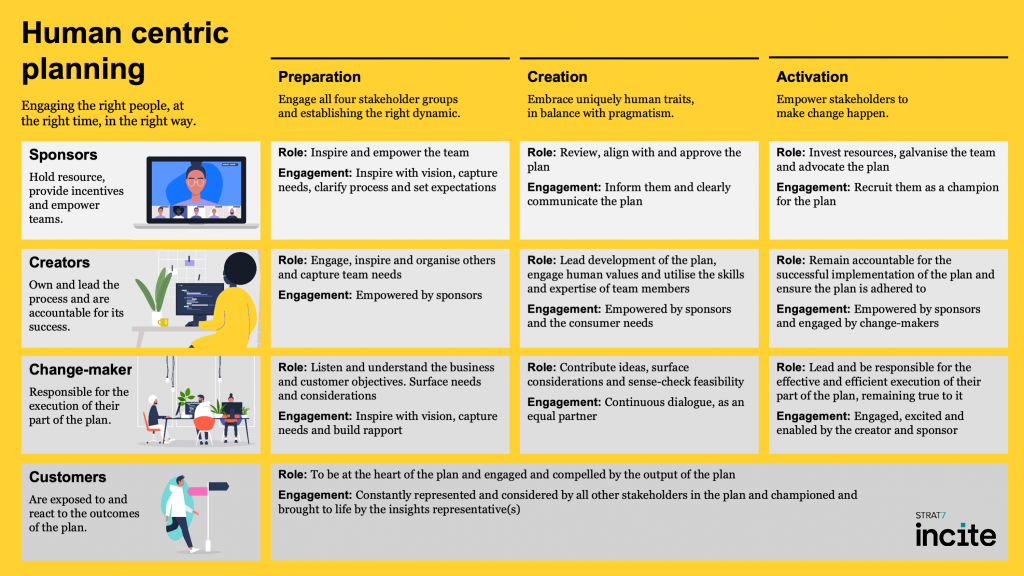Starting 2022 right
Over the last few months I have been working with one of our clients to help them identify a series of internal behavioural interventions that can help galvanise teams to innovate and compete more effectively.
Often when businesses try and diagnose why their innovations are not landing, the blame is placed on the innovation itself or it’s execution (lack of marketing investment or distribution support etc.). What is overlooked are the organisational issues and culture that can be a barrier to their success.
Central to any effective planning process and agile decision making within an organisation is engaging the right people, at the right time, in the right way.
Three steps to success
1 / Engage the right people
There are three internal audiences who need to work together as one, collaborative team if you are to achieve the goals of speed to market. Identifying who is in each of these groups is essential at the very start of any internal project.
Sponsors – Hold resource and empower teams through incentives.
Creators – Own and lead the process and are responsible for its success.
Change-makers – Responsible for the execution of their part of the plan.
2 / Engage them at the right time
Henry Ford once said “Why is it every time I ask for a pair of hands, they come with a brain attached?”
All stakeholder groups need to be involved in all stages of the planning process.
It’s vital that a team has a healthy mix of creativity, courage and commerciality, in equal measure when developing plans. Involving stakeholders with these specific traits in plan creation ensures that the plans are both inspirational and commercially feasible.
Creators need to keep Sponsors and Change-makers involved at all steps so that they don’t end up like feeling like ‘hands’, and feel enabled, excited and empowered to implement the plan.
It is essential to keep Sponsors close to the plan so that they are aligned, and Change-makers so that they can contribute ideas, surface considerations and sense-check feasibility.
3 / Engage them in the right way
From a ‘human-centric’ perspective, plans end up failing or being poorly implemented because they lack someone who is accountable for its delivery. We believe, Creators need to take on a new role at the implementation stage. They become the gatekeepers of the plan: they are responsible for ensuring that the Change-makers are kept accountable while also being provided the resources they need to implement the plan. We see the Creators being the conduit between the Sponsor and Change-maker.
The Sponsors need to advocate the plan and inspire and galvanise the team while the Change-makers lead the implementation of their part of the plan.
For the Change-makers to effectively implement the plan, it is essential that they are not only engaged and excited, but also enabled with the right resources and tools to deliver the plan.
Our ‘Think People First’ philosophy is not just about creating innovations that address consumer needs. It applies equally to internal teams and the essential role they play in creating innovation products and services.
We hope our one-page summary on human centric planning can serve as a ready reckoner when you embark on your internal planning engagements.

Get in touch if you’d like our help.
The pandemic has accelerated change in all aspects of our lives; forcing us – and our clients – to refocus, reimagine and reconnect. Each week, we’ll address the challenges gaining traction to help you navigate the present and plan for the future.
Learn more about how we discovered the three macro themes here.




